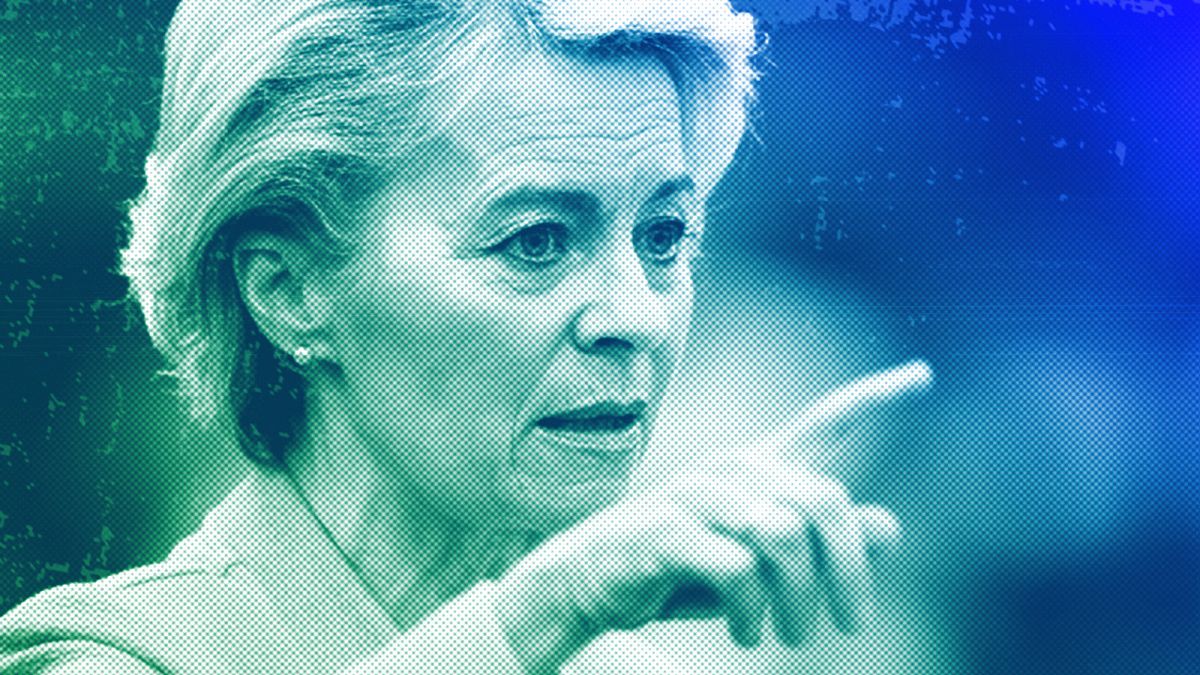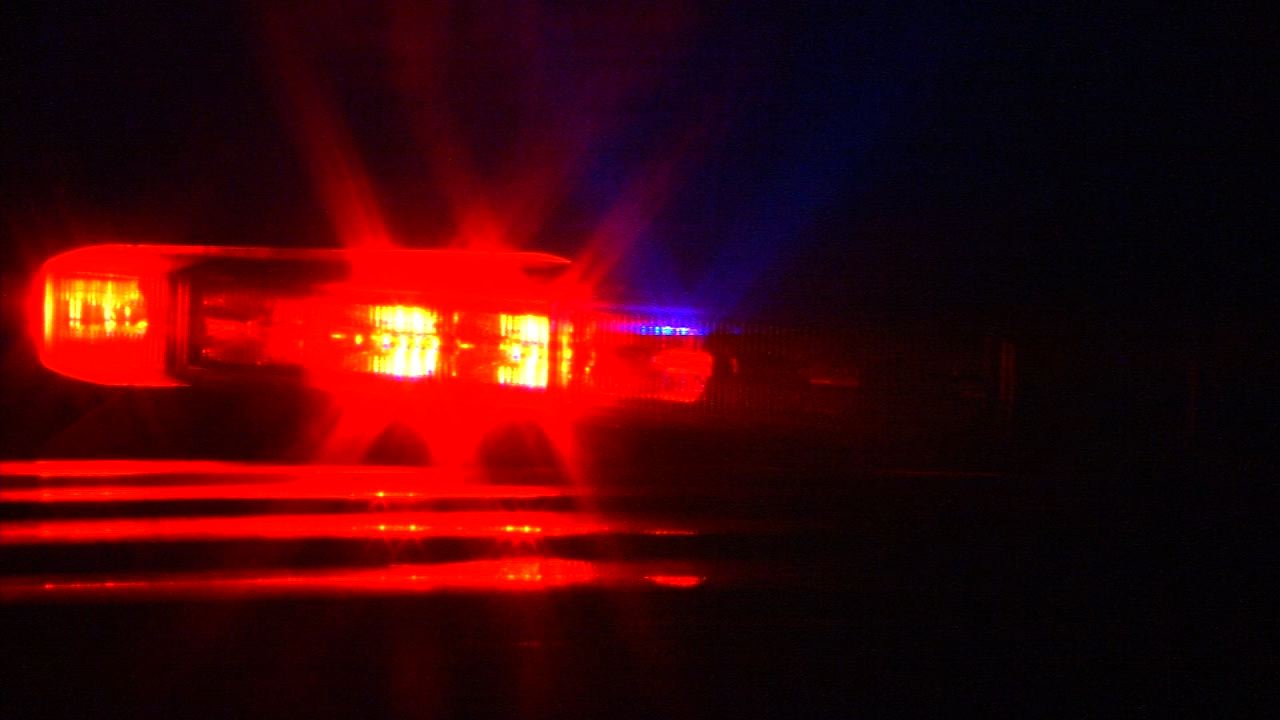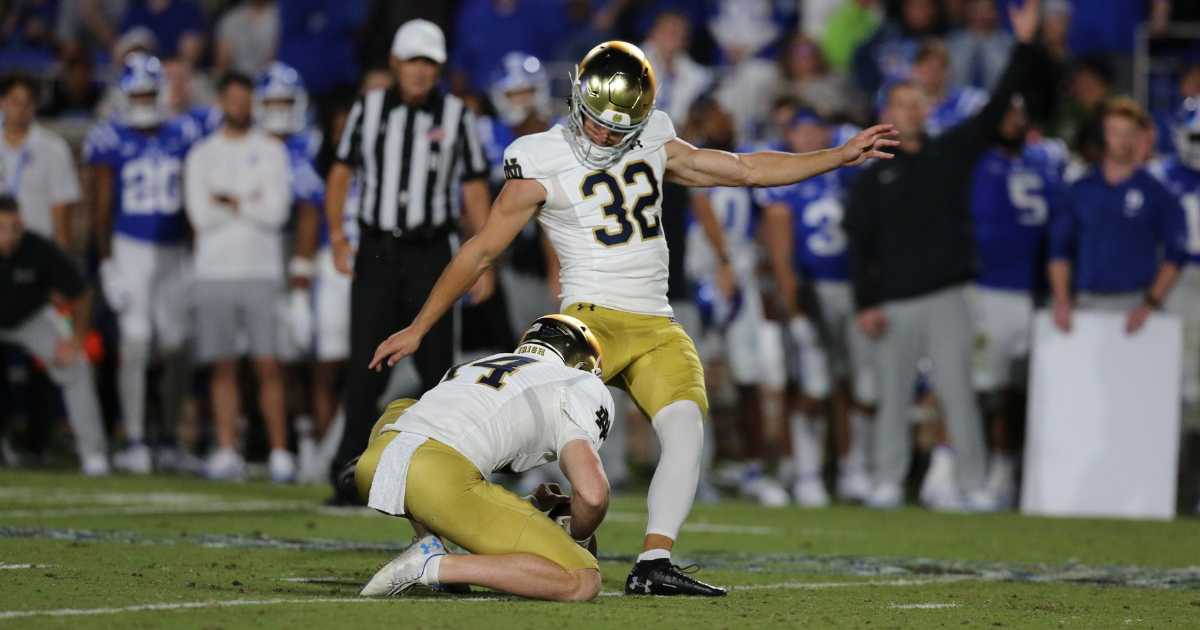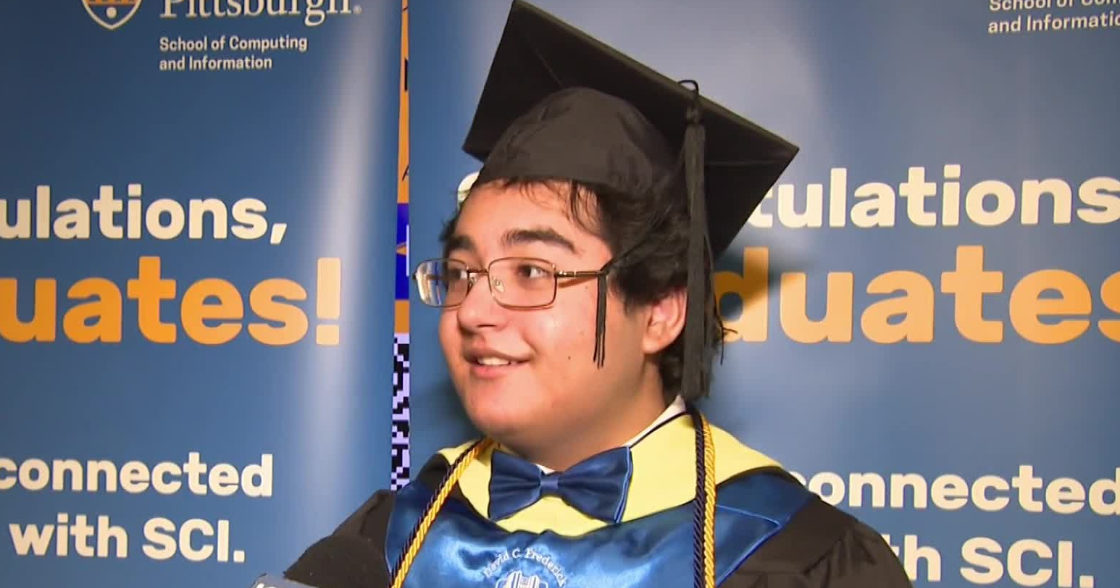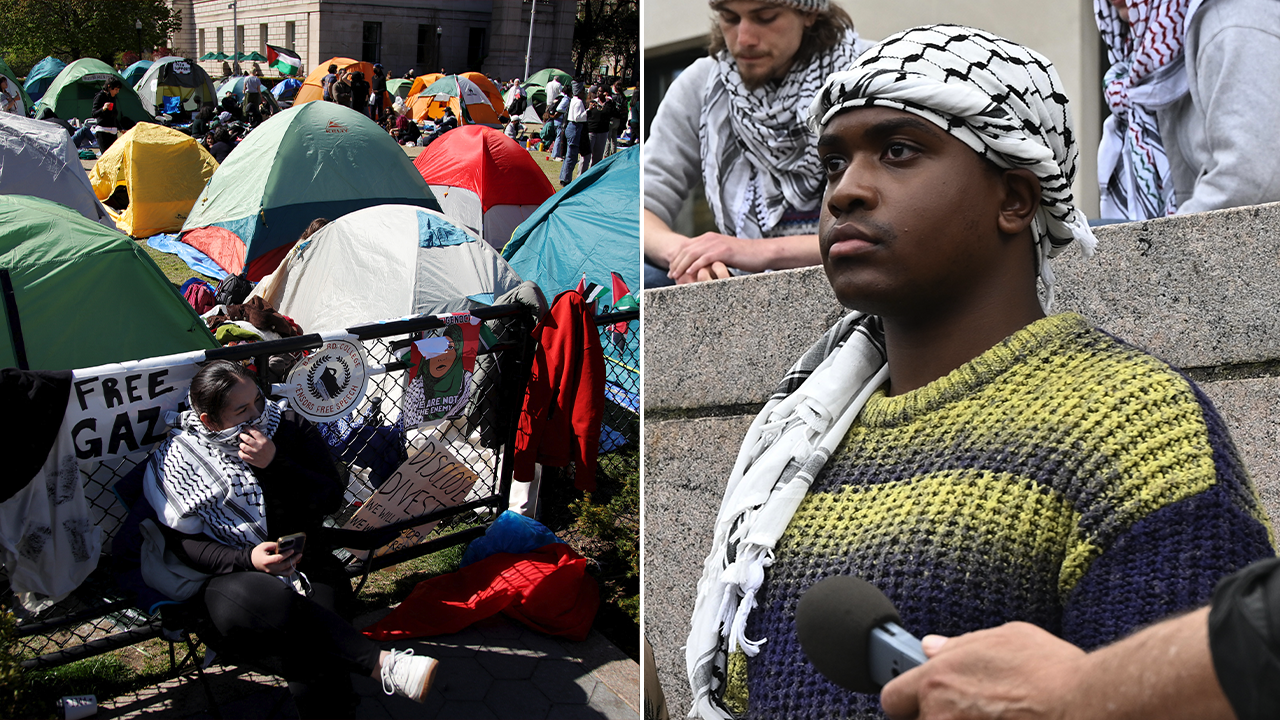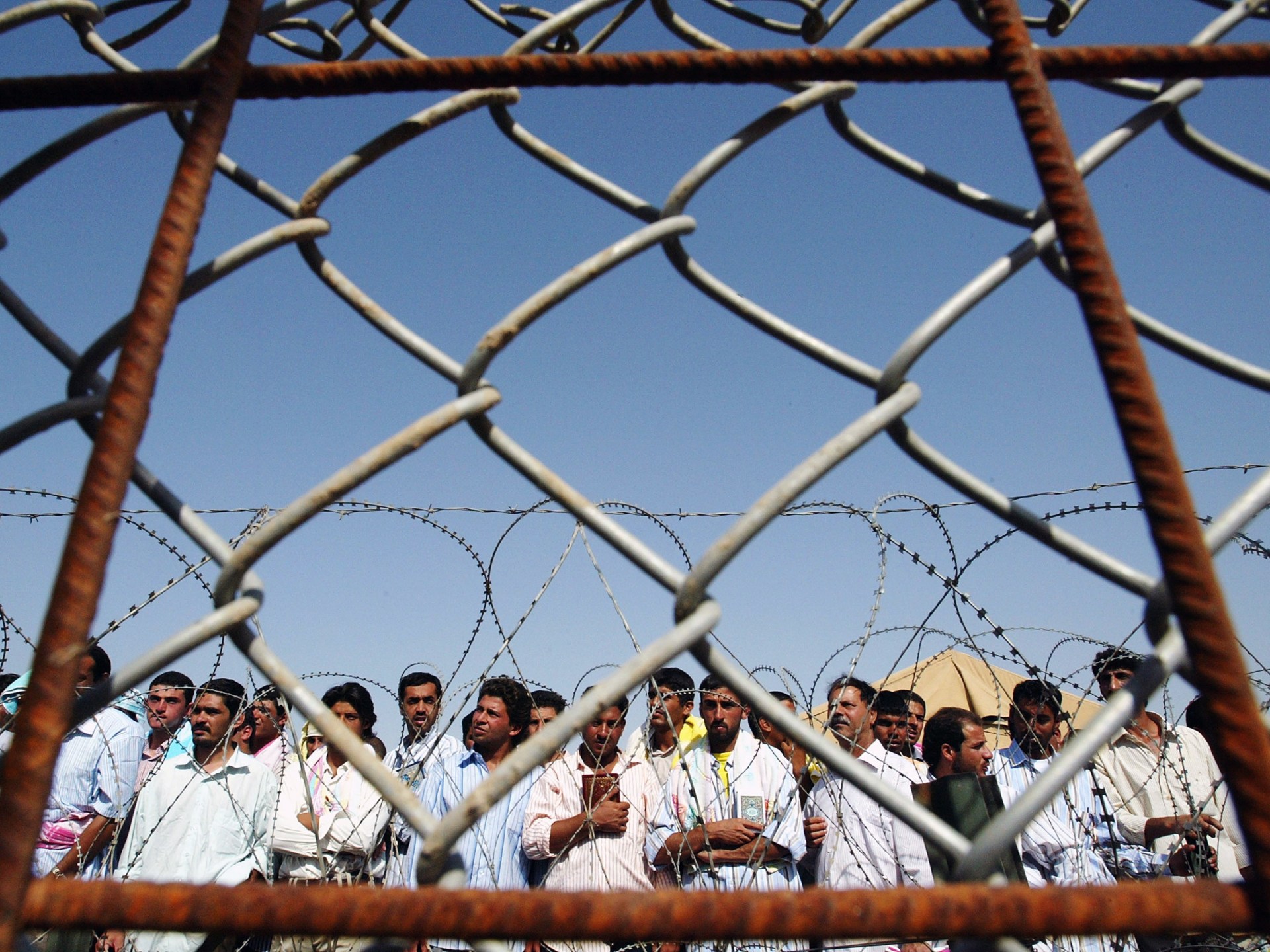World
In seeking re-election, von der Leyen has one real rival: herself
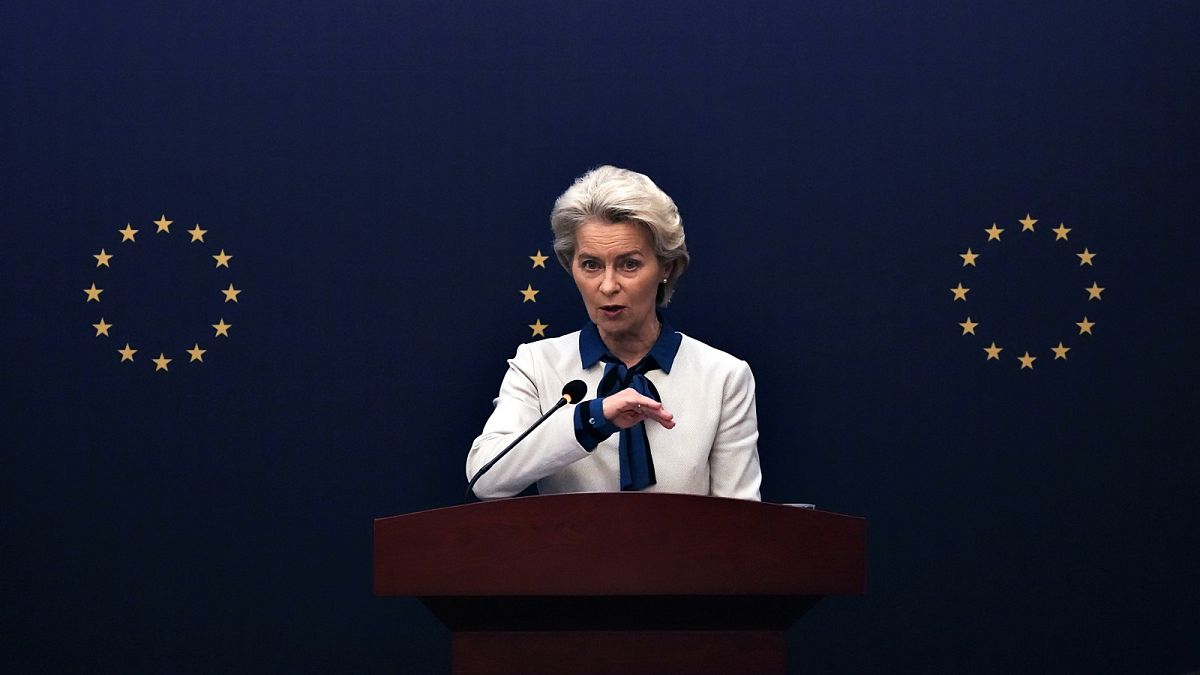
Ursula von der Leyen is often hailed as the most transformational president of the European Commission since Jacques Delors. But could her legacy backfire as she seeks re-election?
The German politician is ready for another five years at the helm of the European Union’s most powerful institution, from which she has shaped the bloc’s policies in ways that would have been unimaginable when MEPs elected her in 2019 by a razor-thin margin.
Her tenure kicked off amid a continent-wide movement of protests and strikes that thrust climate change to the very top of the agenda. It was therefore fitting that one of her first headline-grabbing moments was her presentation of the European Green Deal as a “man on the moon” moment.
The Green Deal set out the binding ambition to make the bloc climate-neutral by 2050, an irreversible shift for a borderless single market that traced its origins to a coal and steel community.
Shortly after, her executive plunged into a succession of crises, some lasting to this day.
“I had been in office for less than 100 days when the WHO declared a global pandemic,” von der Leyen said during her re-election announcement on Monday, referring to the onset of the COVID-19 pandemic, which saw the entire bloc come to a standstill.
The pandemic was followed by a rise in irregular migration, Russia’s invasion of Ukraine, the disruption of energy supplies, record-breaking inflation and an across-the-board economic slowdown. But instead of succumbing to external circumstances, the president managed to capitalise on those crises to strengthen and deepen European integration.
Against the virus, von der Leyen spearheaded a history-making €750-billion recovery fund to jolt the bloc’s economy after crippling months of paralysis. Months later, she oversaw an unprecedented common procurement of vaccines to ensure all member states had access to the life-saving treatment on equal conditions.
When Vladimir Putin gave the go-ahead to invade Ukraine, von der Leyen proposed plans to wean the EU off Russian fossil fuels – a costly vice kept for decades as taboo – and drastically ramp up the deployment of renewables. As a result, the bloc’s dependency rate on Russian gas fell from 45% in 2021 to 15% in 2023. Meanwhile, imports of seaborne oil and coal collapsed to zero.
The president then turned the war into the long-missing catalyst that was needed to revive the project of enlargement and recommended the opening of accession talks with Ukraine, Moldova and Bosnia-Herzegovina, provided the completion of reforms.
When she saw China double down on its assertiveness and stand by Putin’s side, von der Leyen came up with the concept of “de-risking” and drafted the first-ever strategy on economic security, forcing open markets to reckon head-on with geopolitical swings.
On migration, she fought to reform the bloc’s asylum policy as she tried an untested, and controversial, method to sign agreements with neighbouring countries, including Tunisia and Mauritania. And on digital, she laid out a brand-new rulebook to rein in unfair competition, unlawful content and the worst effects of artificial intelligence.
All of this elevated von der Leyen’s profile, both domestically and internationally, to heights previously unknown to her predecessors. She earned glowing coverage in, among others, the New York Times, the Guardian, Time Magazine and Forbes, which named her the world’s most powerful woman for two years in a row.
Inside the Commission, however, her penchant for ambitious policies ruffled feathers among staff, who decried her tendency to micro-manage legislation and take decisions in close consultation with only a very selected, mostly German circle of advisers. Diplomats from member states have complained about what they see as von der Leyen’s insistence on dominating the narrative by floating grand ideas in public, which can have the effect of pre-empting the outcome of internal negotiations.
Von der Leyen’s icy relationship with Charles Michel, the president of the European Council, has been the subject of endless speculation since the infamous Sofagate scandal in Turkey. Last year, Michel openly chastised the Commission for the way it designed a phased-in ban on Russian oil and the memorandum of understanding with Tunisia.
The tension surfaced again after von der Leyen received blistering criticism for her response to the Israel-Hamas war and Michel attempted to position himself as a moderate force among the diverging views of member states. The debacle from her trip to Tel Aviv resonated for weeks and seriously threatened her standing in Brussels.
Still, the Commission president managed to pull through and shake off her harshest critics. By the time she announced her campaign, no other name thrown in the ring had the gravitas to compete with her. The warm wishes sent by EU leaders bode well for her future.
“The old question of Henry Kissinger of who do you phone when you want to phone Europe? I think, at this point in time, it has an answer,” said Nathalie Tocci, director of the Istituto Affari Internazionali (IAI), praising how von der Leyen “very successfully” transformed the pandemic and the Ukraine war into policy opportunities.
“There’s definitely a story about political leadership,” she added. “The flipside to that style is that it has been a very centralised form of leadership which obviously created quite a bit of discontent within the institution itself.”
With no political rival standing between her and the Commission, von der Leyen inevitably becomes her sole adversary. Her legacy, built at a frantic pace in times of extreme urgency, will simultaneously serve as an argument in favour and against her re-election.
It is no coincidence that, as the June elections neared, the political discourse moved to dissect one of her key accomplishments: the Green Deal. Ever since the battle over the Nature Restoration Law, conservative voices, including from von der Leyen’s own political family, the centre-right European People’s Party (EPP), have ramped up their condemnation of environmental policies which, they say, are constraining industrial production, creating excessive bureaucracy and endangering competitiveness.
The farmers’ protests that erupted in January across several European countries only reinforced the right-wing backlash and forced von der Leyen to change her tune, promising “more dialogue” to reconcile climate and agriculture. The scrutiny is set to last until, at least, the June ballot is over and might very well extend into a second presidential term where the economy, defence and high-tech take centre stage.
Faustine Bas-Defossez, director for nature at the European Environmental Bureau (EEB), believes the Green Deal must return to its early days, when it was an “ambitious, transformative agenda” with “high-level commitments,” before being weakened by the “upcoming European elections and the instrumentalisation of the consequences of the war in Ukraine by some actors, in particular from the agribusiness.”
“At a time of fears, eco-anxiety and threats to democracy in several places of the world, we need political courage and hope further down the line,” Bas-Defossez told Euronews.
“The Green Deal remains the only compass we have towards a liveable future. It should therefore remain and get strengthened in the next mandate while putting a new social contract at its core.”

World
Biden will give election-year roast at annual correspondents' dinner as protests await over Gaza war
WASHINGTON (AP) — President Joe Biden is set to deliver an election-year roast Saturday night before a large crowd of journalists, celebrities and politicians against the backdrop of growing protests over his handling of the Israel-Hamas war.
In previous years, Biden, like most of his predecessors, has used the annual White House Correspondents’ Association dinner to needle media coverage of his administration and jab at political rivals, notably Republican rival Donald Trump.
But with protesters pledging to gather outside the dinner site, any effort by Biden to make light of Washington’s foibles and the pitfalls of the presidential campaign will have to be balanced against concerns over the war and humanitarian crisis in Gaza and the perils for journalists covering the conflict. Criticism of the Biden administration’s support for Israel’s 6-month-old military offensive in Gaza has spread through American college campuses, with students pitching encampments in an effort to force their universities to divest from Israel. Counterprotests back Israel’s offensive and complain of antisemitism.
Biden’s speech before an expected crowd of nearly 3,000 people at a Washington hotel will be followed by entertainer Colin Jost from “Saturday Night Live,” who is sure to take some pokes at the president as well as his opponents.
There will also likely be a spotlight on the many journalists detained and otherwise persecuted around the globe for doing their jobs, including Wall Street Journal reporter Evan Gershkovich, who has been imprisoned in Russia since March 2023.
But before the president gets to the Washington Hilton — where the event has been held for decades — he was expected to pass hundreds of people rallying along the path of Biden’s motorcade and nearby to bring attention to the high numbers of Palestinian and other Arab journalists killed by Israel’s military since the war began in October.
Law enforcement, including the Secret Service, have instituted extra street closures and other measures to ensure what Secret Service spokesman Anthony Guglielmi said would be the “highest levels of safety and security for attendees.”
The agency was working with Washington police to protect demonstrators’ right to assemble, Guglielmi said. However, “we will remain intolerant to any violent or destructive behavior.”
More than two dozen journalists in Gaza wrote a letter last week calling on their colleagues in Washington to boycott the dinner altogether.
“The toll exacted on us for merely fulfilling our journalistic duties is staggering,” the letter states. “We are subjected to detentions, interrogations, and torture by the Israeli military, all for the ‘crime’ of journalistic integrity.”
One organizer complained that the White House correspondents’ association — which represents the hundreds of journalists who cover the president — largely has been silent since the first weeks of the war about the killings of Palestinian journalists. WHCA did not respond to request for comment.
According to a preliminary investigation released Friday by the Committee to Protect Journalists, nearly 100 journalists have been killed covering the war in Gaza. Israel has defended its actions, saying it has been targeting militants.
“Since the Israel-Gaza war began, journalists have been paying the highest price— their lives—to defend our right to the truth. Each time a journalist dies or is injured, we lose a fragment of that truth,” CPJ Program Director Carlos Martínez de la Serna said in a statement.
Sandra Tamari, executive director of Adalah Justice Project, a U.S.-based Palestinian advocacy group that helped organize the letter from journalists in Gaza, said “it is shameful for the media to dine and laugh with President Biden while he enables the Israeli devastation and starvation of Palestinians in Gaza.”
In addition, Adalah Justice Project started an email campaign targeting 12 media executives at various news outlets — including The Associated Press — expected to attend the dinner who previously signed onto a letter calling for the protection of journalists in Gaza.
___ Associated Press writers Mike Balsamo and Fatima Hussein contributed to this report.
World
Ukraine lawmaker, 34, fights for Kharkiv in the public square
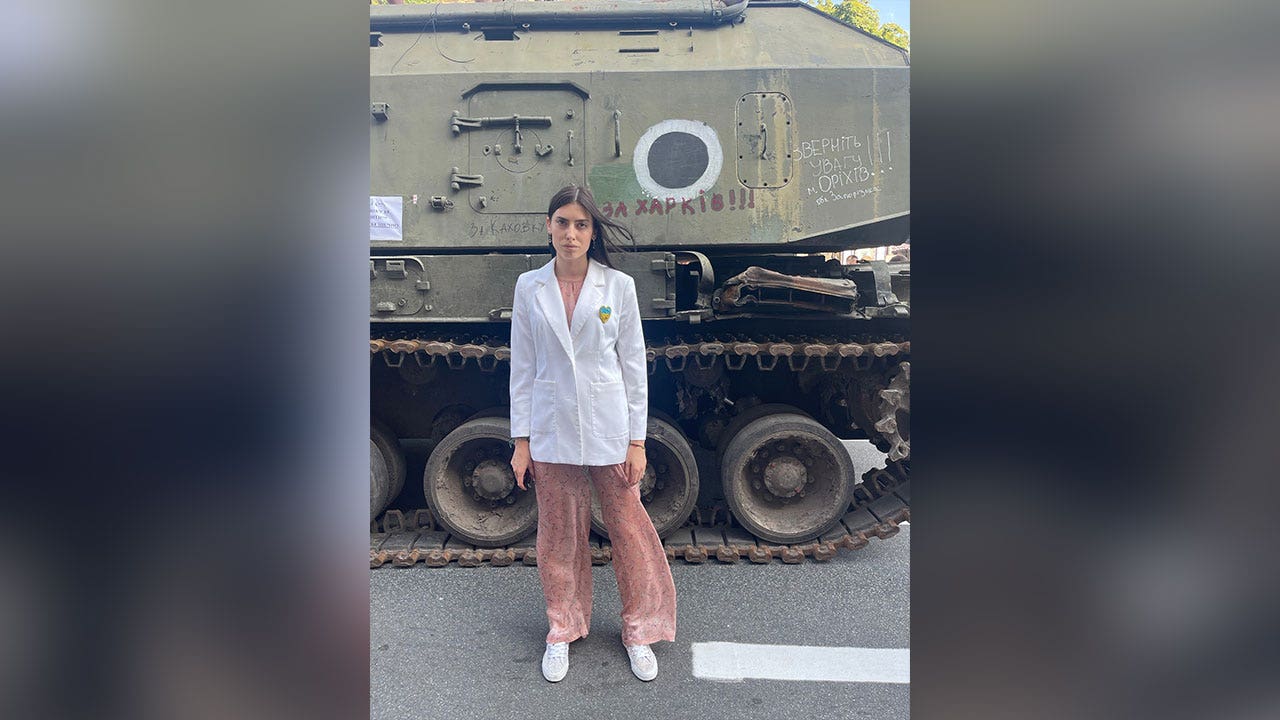
Mariia Mezentseva is a face of the war in Ukraine.
At just 34 years old and a member of Ukraine’s parliament, her formal tasks include looking into ways Ukraine can integrate into the rest of Europe’s institutions.
But, what really has gotten her attention are her posts about her hometown, Kharkiv. It has a population of 1.3 million people, just 20 miles from the northeast border with Russia.
From the beginning, Putin has wanted to take it over. In 2022, Ukrainians pushed them back.
However, in recent months, Russian attacks have grown furious, knocking out residential areas, power infrastructure, even the city’s huge TV tower.
Ukrainian parliament member Mariia Mezentseva in Kharkiv. (Mariia Mezentseva)
KEY NATO ALLY SHOCKS WITH ITS ‘SINGLE LARGEST’ PLEDGE TO UKRAINE: ‘THEY NEED OUR SUPPORT’
Moscow, in fact, made clear it has wanted to turn Kharkiv into a demilitarized zone so it would not threaten Russia.
Critics said Moscow has tried to turn Kharkiv into Aleppo, the Syrian rebel stronghold Russia flattened in its support of Assad in Damascus.
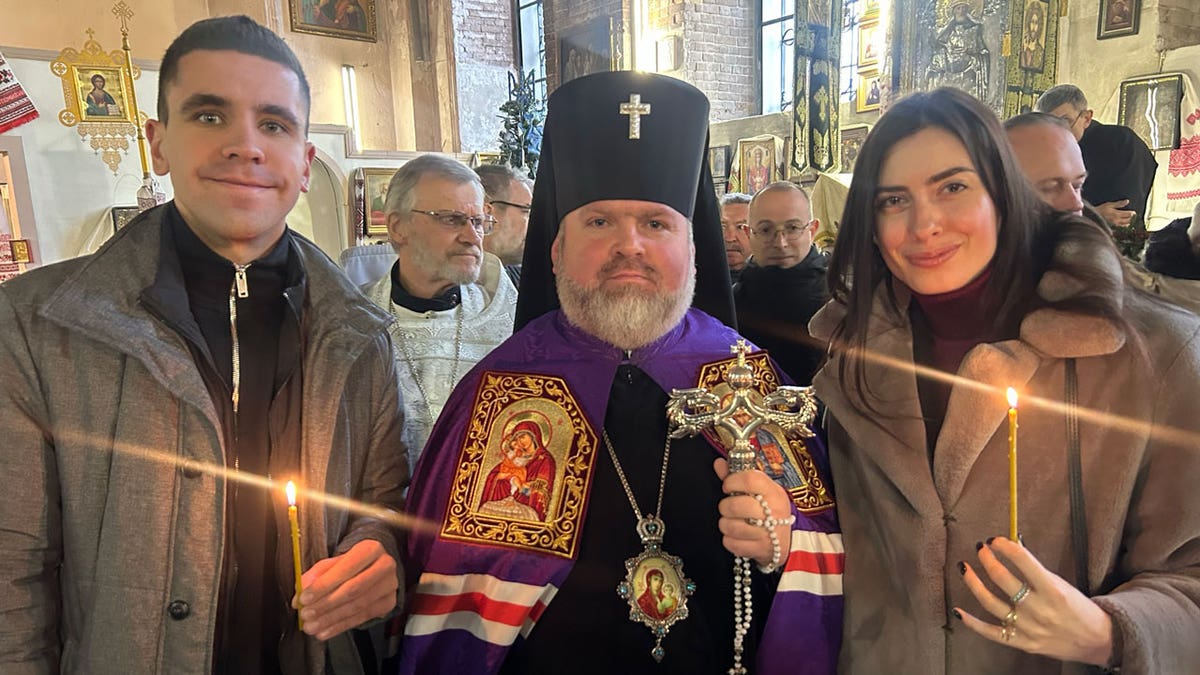
Ukrainian parliament member Mariia Mezentseva has taken her fight to social media. (Mariia Mezentseva)
Mezentseva regularly has posted shots of damage, rescue and relief efforts in Kharkiv, branding Russian efforts “genocidal actions.”
She generally has exuded hope, especially for the recent package of U.S. military aid for Ukraine which would benefit her home area.

Ukrainian parliament member Mariia Mezentseva standing in front of a military vehicle. (Mariia Mezentseva)
The package, Mezentseva said, “will serve the purpose for sure.”
Basically, for the time being at least, it will keep the city alive.
World
Zelenskyy warns of Russian nuclear risks on Chernobyl anniversary
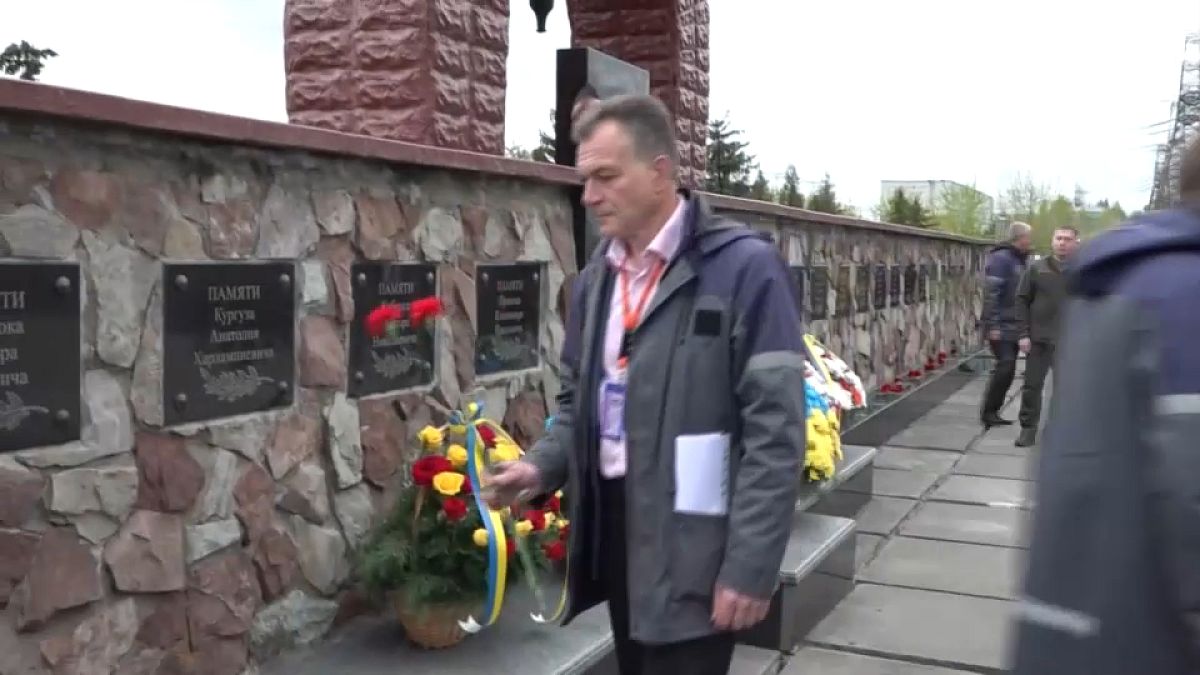
Ukrainian President Volodymyr Zelenskyy warned on Friday that the safety of Europe’s largest nuclear power plant Zaporizhzhia is threatened by Russia’s war against Ukraine, as the country marked the 38th anniversary of the Chernobyl disaster.
On the 38th anniversary of the Chernobyl nuclear power plant disaster on Friday, Ukrainian President Volodymyr Zelenskyy warned of the risks surrounding the Zaporizhzhia nuclear facility, which has been at the centre of nuclear safety crisis since Russia’s invastion of Ukraine.
Even under the shadow of the Chernobyl disaster in 1986, Zelenskyy said Russian forces were not taking the safety of the plant seriously.
Russian forces seized the Zaporizhzhia nuclear power plant in southern Ukraine in the first days of its 2022 invasion.
Both sides regularly accuse each other of endangering safety at the site, Europe’s largest nuclear facility.
“For 785 days now, Russian terrorists have held hostage the Zaporizhzhia NPP,” Zelenskyy wrote on X, formerly Twitter. “And it is the entire world’s responsibility to put pressure on Russia to ensure that ZNPP is liberated and returned to full Ukrainian control, as well as that all Ukrainian nuclear facilities are protected from Russian strikes.”
“This is the only way to prevent new radiation disasters, which the Russian occupiers’ presence at ZNPP constantly threatens.”
The Chernobyl explosion in 1986 is considered the worst nuclear accident in history in terms of the scale of contamination and the number of victims. The detonation in the reactor zones caused radioactive contamination that directly contaminated a radius of tens of kilometres, and wind and water movement carried nuclear contamination further afield.
-

 Movie Reviews1 week ago
Movie Reviews1 week agoMovie Review: The American Society of Magical Negroes
-

 World1 week ago
World1 week agoIf not Ursula, then who? Seven in the wings for Commission top job
-

 Kentucky1 week ago
Kentucky1 week agoKentucky first lady visits Fort Knox schools in honor of Month of the Military Child
-

 Politics1 week ago
Politics1 week agoTrump trial: Jury selection to resume in New York City for 3rd day in former president's trial
-
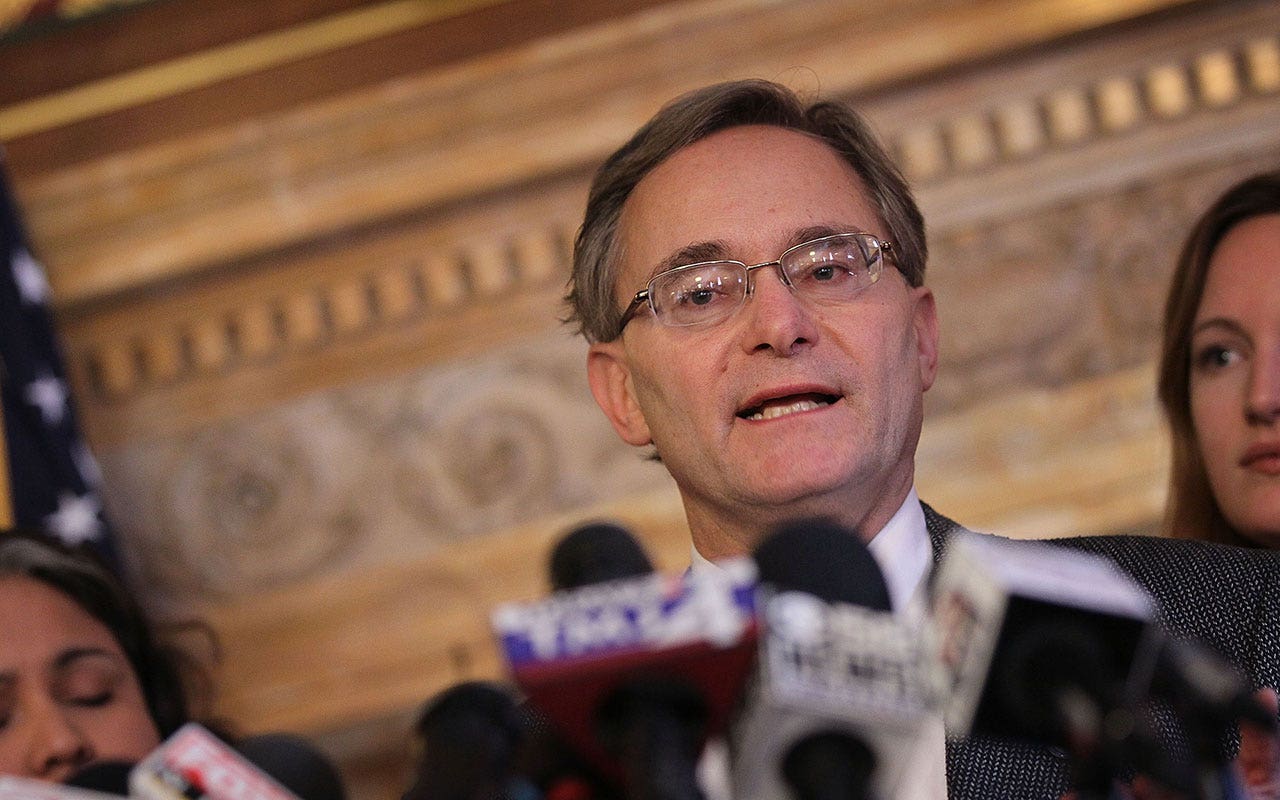
 Politics1 week ago
Politics1 week agoFormer Wisconsin Democratic Rep. Peter Barca launches congressional comeback bid
-
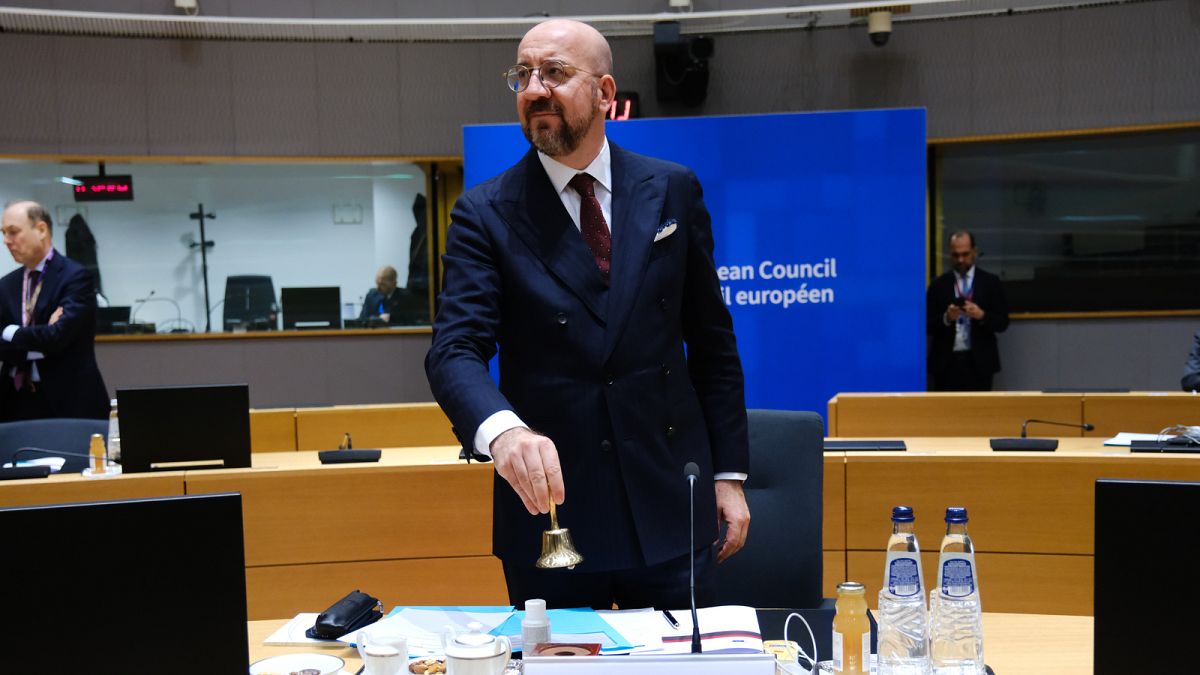
 World1 week ago
World1 week agoEU leaders weigh Lebanon partnership in response to Middle East crisis
-

 Culture1 week ago
Culture1 week agoWrexham are a good story, yes, but they are no footballing fairytale
-
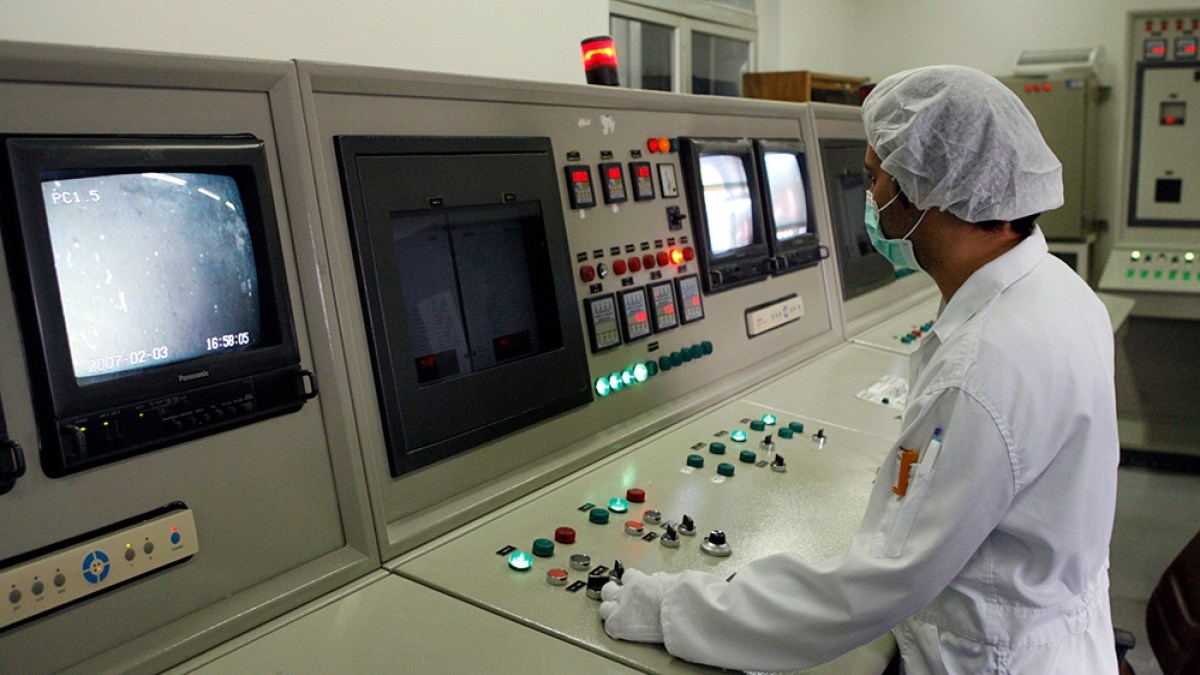
 World1 week ago
World1 week agoIsraeli attack on nuclear sites to prompt tit-for-tat, pursuing nukes: Iran


